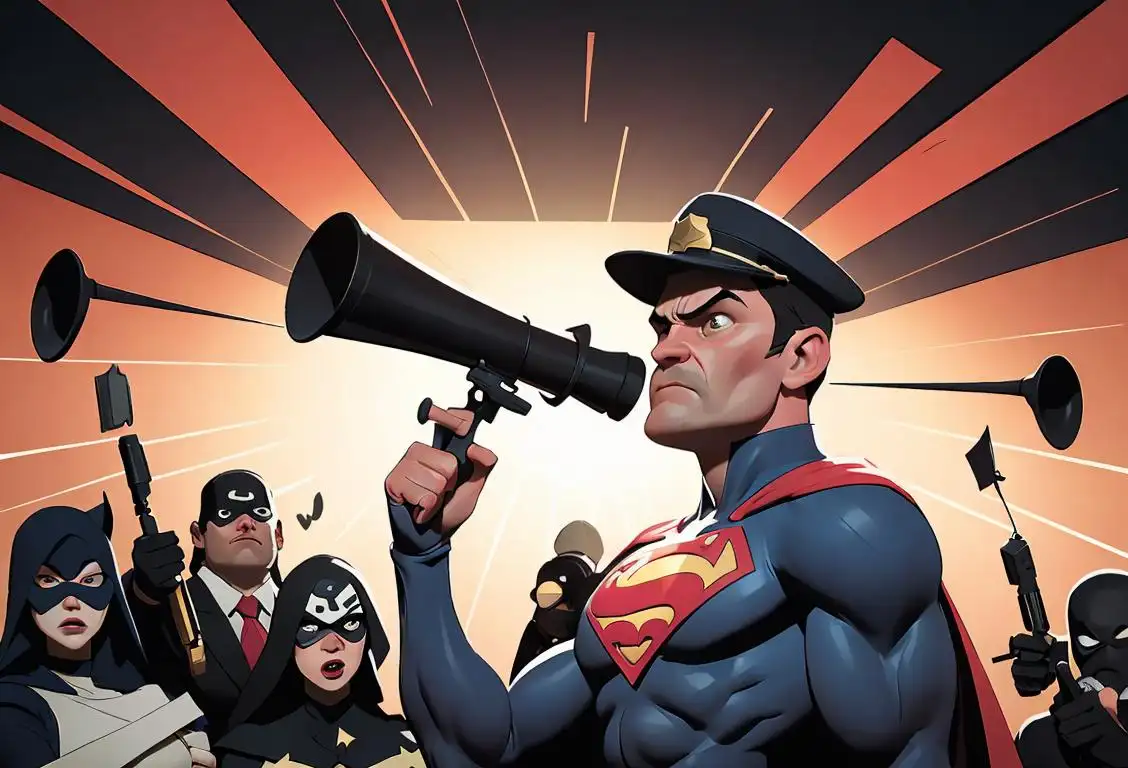National Boss Day

Alright folks, gather round, I come bearing exciting news! Today, we're taking a dive into the intriguing world of National Boss Day. Don't you dare roll your eyes now, even if you sometimes can't tell if your boss is a ray of sunlight or a bolt of lightning. We know, a whole day of cheering for the bosses? Didn't see that coming, did you? Well, come along, let's tentatively dip our toes in the exceptionally sparkly waters of this day, shall we?
When is Boss Day?
It's national boss day on the 16th October.
The Unveiling of National Boss Day
The first celebration for National Boss Day was recorded in 1958. Patricia Haroski, keen-eyed and big-hearted employee from State Farm Insurance Company in Illinois, initiated it. But hold your horses! The day she chose? October 16. You guessed right - it's her father's birthday, who also happened to be her boss. Smooth move, Patricia!
The Most Mentioned Day
The rise of social media has sent this unusual day skyrocketing. And the year it hit all-time high online mentions? Tailor your drumroll to fit 2015! Now that's what we call a viral trend!
The Reason For The Season...Day!
Now, we all have our tales of boss-woe, but the idea behind this day is to appreciate the hard work and dedication bosses put into their roles. So, pizza party on the 16th? Your chance to momentarily swap places with the boss, throwing in a wink with that smile of theirs.
How To Celebrate
Fret not, we’re not suggesting plastering your boss's face on a t-shirt or building a statue in their honor. Subtle acts of appreciation work wonders, trust me. A thoughtfully written note or a favorite cup of coffee can go a long way in making your boss feel valued.
History behind the term 'Boss'
1625
Origin in Dutch Language
The term 'boss' finds its roots in the Dutch language. It is derived from the word 'baas,' which means 'master' or 'head' in Dutch. This term was commonly used to refer to someone who had authority or control over others. The concept of a boss dates back to the 17th century, originating in Dutch culture.
1830
Adoption in English Language
During the early 19th century, the term 'boss' started to make its way into the English language. It was initially used in the United States to refer to an employer or supervisor. The term gradually gained popularity and became synonymous with a person in a position of authority within a hierarchy or organization. This adoption occurred during a time of industrialization and the rise of the working class.
1910
Boss as a Negative Connotation
In the early 20th century, the term 'boss' began to develop a negative connotation. It was associated with someone who was strict, authoritarian, and often oppressive towards their subordinates. This negative perception of bosses was influenced by the exploitation and poor working conditions experienced by many workers during the industrial revolution. The term 'boss' started to carry a sense of dominance and control over employees.
1970
Boss as a Term of Empowerment
In the 1970s, there was a shift in the perception of the term 'boss.' It started to be embraced by certain individuals as a symbol of empowerment and success. This shift can be attributed to the changing dynamics of the workplace and the rise of entrepreneurship. Some individuals saw being a boss as a way to take control of their own destiny and create opportunities for themselves and others. The term 'boss' began to be used in a positive and aspirational manner.
Present
Modern Usage and Pop Culture Influence
In the present day, the term 'boss' is commonly used in various contexts. It is still used to describe someone in a position of authority within an organization, but it has also expanded to represent a person who is confident, assertive, and in control of their life. The term has gained popularity in pop culture, with songs, movies, and social media accounts celebrating the idea of being a 'boss.' It has become a symbol of empowerment and self-determination, representing someone who is goal-oriented and successful.
Did you know?
Take this in: The state of Illinois didn't officially proclaim National Boss Day until 4 years after Patricia Haroski suggested it. Turns out, bureaucratic paperwork can indeed be slow.Tagged
fun appreciation Boss Day workplace celebrationFirst identified
10th May 2015Most mentioned on
16th October 2015Total mentions
15031Other days
Boss Day
Parents Day
School Librarian Day
Teacher Day
Hug A Drummer Day
Whistleblower Appreciation Day
Hug A Newsperson Day
Teacher Appreciation Day
Spouse Day
Toilet Paper Day








